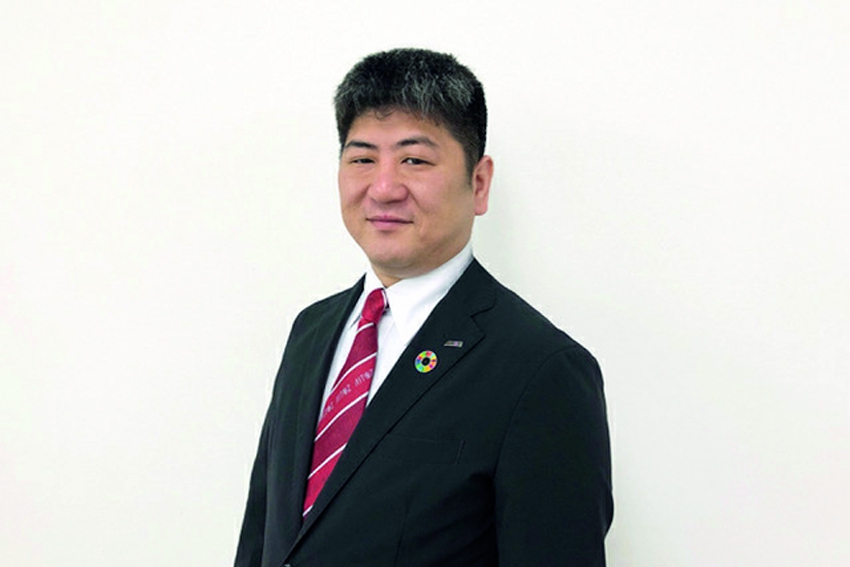As Japan’s SMEs look to expand their international operations, they are banking on a strict adherence to the Japanese manufacturing philosophy of monozukuri and the highly-revered ‘Made in Japan’ brand to set them apart from the competition.

If there is one word that is synonymous with Japanese manufacturing, it is undoubtedly “quality”. From cars and electronics, to textiles, chemical products and onto high-tech engineered components and machines, Japanese manufacturers’ painstaking attention to detail has ensured the long-standing reputation of the ‘Made in Japan’ brand across the globe.
In more recent decades, Japan has faced stiff competition from regional competitors in China and South Korea. And while these countries may have surpassed Japan in terms of quantity and price, they have often failed to replicate the distinctive Japanese quality that continues to set many Nippon companies apart from their regional counterparts offering cheaper alternatives.
A discussion about this topic with the proud president of any Japanese manufacturing fi rm will likely throw up some variation of the following: “If you’re searching for quality that stands the test of time, turn to Japan. If short-term cost saving is your priority, look elsewhere.” Japanese products may cost more at the offset. However their durability and reliability often means less money is spent on maintenance, repairs or replacements in the longer term.
So what exactly is so unique about the Japanese manufacturing tradition that ensures this often unmatchable quality? The answer – ‘monozukuri’, a longstanding philosophy held by Japanese fi rms which focuses on pride, skill, dedication and the pursuit of innovation and perfection.
Monozukuri (a combination of ‘mono’ meaning thing and ‘zukuri’ meaning the act of making) is often equated to ‘craftsmanship’ in English. However while craftsmanship often puts emphasis on the craftsman, monozukuri is more about reverence for the thing being made, thus defl ecting attention away from the person doing the making. Stemming from a centuries-old Japanese culture based on a deep respect for both animate and inanimate objects, monozukuri not only focuses on crafting the highest quality products, but also on sustainable manufacturing and working in harmony with the surrounding environment.
Toyota made the term become globally recognized in the world of business some years back. The automobile maker’s reputed Toyota Production System is firmly based on the monozukuri philosophy, or what it calls an “all-encompassing approach to manufacturing.” And while household names such as Toyota, Nissan, Honda, Sony, Panasonic, and Nikon are the ambassadors of monozukuri at a global level, there are thousands of small and mid-sized Nippon firms now looking to expand beyond Japan’s borders to bring their high quality products to an entire new base of overseas customers.
Shrinking domestic demand, brought about by Japan’s aging population, has compelled many of these companies to look for growth opportunities abroad, where they are banking on their strict adherence to Japanese monozukuri and the highlyrevered ‘Made in Japan’ brand to set them apart from the competition.
One such company looking towards the international market is textile maker, Aitoz Corporation. Having established itself as a leading manufacturer of work wear for all segments, with a particular focus on manufacturing, delivery and logistics wear, Aitoz has plans to export its products to the European and North American markets, where it sees ample potential for its next-generation work clothing.
“We have analyzed the market in Europe and North America. What we’ve learned is what they are actually wearing is not comfortable at all,” says president, Takayuki Ito. “For instance, their boots are quite heavy, so it is harder to move around. However, our products are revolutionary; we strive in R&D to ensure our products are lightweight with flexibility and functionality.”
Driven by a constant pursuit for innovation, Aitoz has always strived to make groundbreaking products, the latest of which include its ‘Ice Vest’, a vest containing ice packs that is designed to prevent outdoor workers from suffering heat stroke (a common issue in Japan), and clothing featuring Diaplex, an intelligent textile designed for workers working in outdoor environments which is highly repellant to substances such as water, oil and dust.
“When the temperature inside the clothing is low, Diaplex shuts out the permeation of air and water vapor molecules. On the other hand, when the temperature inside the garment rises, it exhibits the moisture permeability function that actively releases air and water vapor molecules to the outside of the garment,” explains Mr. Ito, who adds that Diaplex also has potential to be deployed as protective gear amid the current coronavirus pandemic.
As with any monozukuri-focused company, Aitoz has committed itself to sustainable manufacturing and made valuable efforts to comply with three of the United Nations Sustainable Development Goals (SGDs): fi rstly, the promotion of sustained, inclusive, and sustainable economic growth, full and productive employment, and decent work for all; secondly, sustainable consumption and production patterns; and thirdly, the revitalization of global partnership for sustainable development.
“We believe that our company could help to solve more problems by implementing SDGs,” adds Mr. Ito. “For us, it is crucial to get brand recognition as a company, domestically and internationally. So, when people see our brand tag, they know about our company and what we do.”
0 COMMENTS